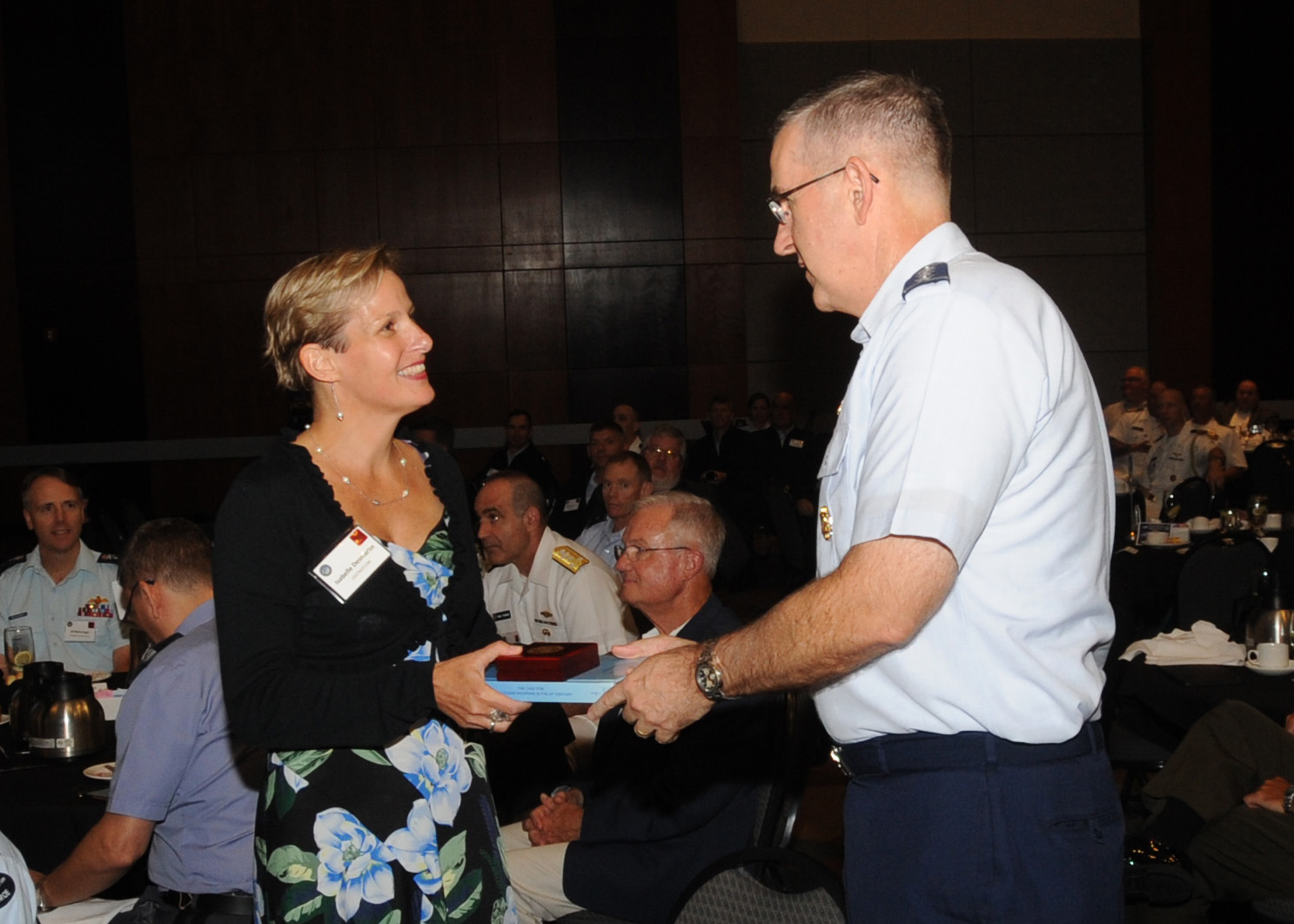Isabelle Desmartis, Canadian Department of National Defence director general of policy planning, receives a momento from USAF Gen. John. Hyten, commander of US Strategic Command, following a presentation during USSTRATCOM’s annual Deterrence Symposium at the CenturyLink Center, Omaha, Neb., July 27, 2017. Photo by Steve Cunningham.
Effective deterrence on a global scale requires sustained international collaboration, the chief of US Strategic Command Gen. John Hyten said at STRATCOM’s 2017 Deterrence Symposium, held in Omaha, Neb., July 26-27.
A total 650 participants from 13 nations attended the symposium, which focused on fostering frank conversation on some of the most difficult security risks in the world today. “We need to be open and not hold back on these discussions,” Hyten told the audience, according to a STRATCOM press release.
He said deterrence today is not a mission the US can accomplish on its own. “We need to work together as allies and partners. That’s one of our biggest strengths we have that in many ways our adversaries do not.”
Global partners attending the symposium included experts and practitioners from the Republic of Korea, Japan, Australia, New Zealand, India, Canada, Denmark, France, Germany, Georgia, the Netherlands, Poland, and the United Kingdom.
“Deterrence is a day-to-day competition with specific applications,” Army Gen. Vincent Brooks, commander of US Forces Korea, said in a speech at the symposium. “Deterrence in one area does not equal deterrence universally in all competitive areas,” he said.
But Brooks also said the foundation of all effective deterrence remains “a credible consequence, a real capability to inflict cost if deterrence is broken.”
In the case of North Korea’s nuclear weapons program, Brooks said, “The international community is seeking deterrence,” as a first option. The use of force, however, “must remain an option if North Korea does not choose to be deterred,” he added.
In his closing remarks, Hyten said the global participants in the symposium provided “insight on their views of the evolving strategic environment, and that insight is enormously helpful.” He also said the gathering was a first step toward the development of an “allied approach for deterring and responding to our adversaries.”
